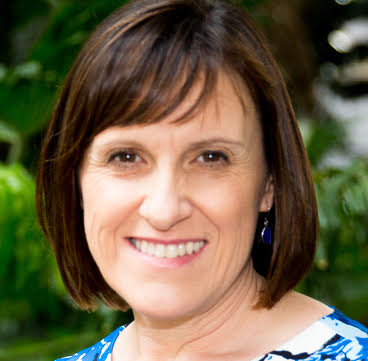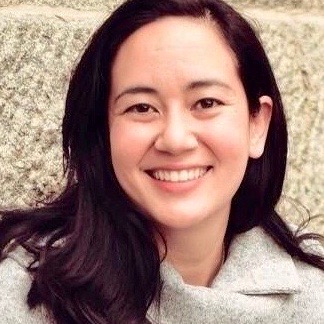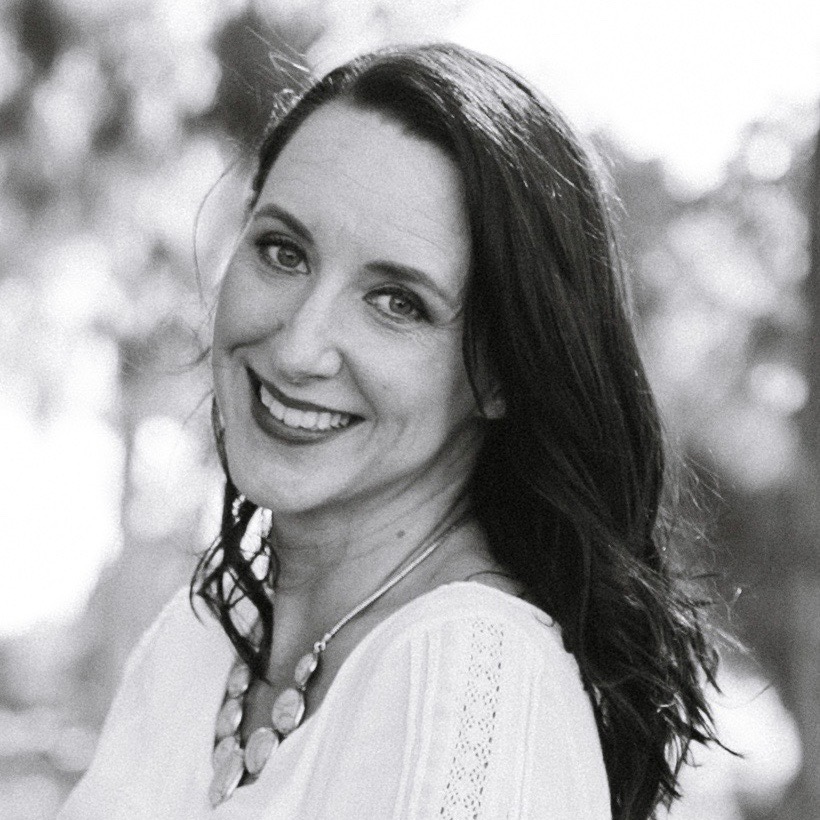Discover Where Genius Grows
Where Genius Grows

86 Episodes
Reverse
“Once we can see that we are not this enduring, consistent, perfect self that we've constructed ourselves to be—that we see all the ways in which we don't show up aligned with our intentions or who we want to be in the world—we start to have compassion for other people and their challenges in doing so. Once we see our complexity, we can see others’ complexity.” — Valerie Livesay Embracing every aspect of ourselves can feel squarely at odds with how we’re accustomed to showing up in our lives. But what is the cost of only ever putting our best foot forward? In this episode Valerie Livesay invites Zafer Achi and Gideon Culman to reflect on their experiences of integrating the parts of their lives that they had until recently been reluctant to fully claim.
"The linear approaches are genuinely slow and methodical. And we've missed our window for that. We now need lots and lots of experiments that need unpredictable results, hopefully in the positive direction. And that's going to get us out of this next huge global challenge." — Patrice Laslett Patrice Laslett works as a partner at Cultivating Leadership. She is a faculty member of the Growth Edge Coaching workshops.
"One of the great feelings about intimacy is that it keeps unraveling itself. It keeps exposing itself. It keeps flowering anew. You keep feeling like you're discovering an unknown other for the first time, because what you're discovering is new for you." — William Torbert William Torbert's oeuvre of Collaborative Developmental Action Inquiry has been making waves for decades. But when we approach Torbert's remarkably practical body of work intent only on optimizing our own effectiveness, are we doing ourselves a disservice? In this conversation about Torbert's memoir Numbskull in the Theatre of Inquiry we consider the importance of spiritual questioning that hinges on timely inaction.
"There is some really good coaching happening without even seeing the coach or knowing what the coach's name is. I've been doing some digital debrief . . . and it's my colleague Nick's picture up there, it's not even me. They don't even know who I am. And in some ways, it's kind of fun because I've got my invisibility cape on but in another way I can really see how it's more about the client and their process." — Jan Rybeck
"It's very important to just take those few minutes to hold that coffee cup, to think of that good memory, to pull out an old photo, listen to one song that you absolutely love. But that's the stuff, just those little tidbits, because the rest of it is not joyful. It's not." — Jodi Sleeper-Triplett Jodi Sleeper-Triplett is a Master Certified Coach, trainer, mentor, and speaker. She is the author of Empowering Youth with ADHD and contributing author of Becoming Self-Determined: Creating Thoughtful Learners in a Standards-Driven, Admissions-Frenzied Culture. Her company, JST Coaching & Training, provides student and ADHD coach training programs to individuals and educational institutions.
"I want to have my insides match my outsides. I want how I view myself internally to match my external behavior. That's my objective every day. That's my purpose. And if I do that, then I know I'm a good human for others." – Carly Anderson Carly Anderson is a Master Certified Coach. Since 2005 Carly has served the International Coaching Federation as an assessor, evaluating the skills of coaches applying for credentials. Carly also mentors coaches engaged in growth toward their next credential. In this conversation, Gideon Culman and Carly Anderson each share their path into master-level coaching and discuss how this journey has impacted their lives.
"If I could tell every parent in the United States right now something from a teacher: 'You're doing fine. Whatever you're doing today is enough. And I don't think parents are hearing that enough. And it's true. Your child is learning. We promise.'" — Anne Huntington Anne Huntington and Emily Newman founded Beyond the Classroom Consultants to guide parents through the process of making informed educational choices for their elementary aged children. As young students and school districts across the country wade into the uncharted waters of remote learning, Emily and Anne offer practical perspectives to make life easier for parents.
"Nobody is doing this right. There's no rulebook. I think the best that we can do is acknowledge that we are struggling, find little moments of connection and enjoy, because we don't know what tomorrow is going to bring." — Lea Didion Psychologists define trauma in terms of incidents and events. How does our understanding of trauma evolve when people around the world face new traumas every day with no end in sight? Lea Didion, Psy.D. who specializes in the assessment and treatment of trauma discusses her take on this question.
"It is an incredibly scary thing to do to face into the parts of self that we seek to deny, that we felt like we had obliterated. And to recognize that they live within us still is really frightening. And it can be painful to re-encounter them and there can be so much incredible loss in seeing the self that is full and whole and imperfect. And there are such beautiful gifts to be found from exploring our fallback." — Valerie Livesay The growth we undergo as adults isn't always expansive. Stressful times can make us shrink. Adult development theorists call this shrinkage 'fallback'. Writer Valerie Livesay illuminates in this episode how cultivating a willingness to confront the fear, pain, and loss of coming to know and embrace every aspect of ourselves has informed her research and experience of fallback. Pandemic Companions episode in which Valerie defines fallback
"That divide should not exist in healthcare right now. Why? Because we're too far along. We're too innovative. We have too much technology. There should never be a gap." — Courtney Lang Inequity in healthcare actively harms people in every area of society. Courtney Lang is the founder and principal of Lang Co and Partners, a public affairs firm focused on healthcare. In this episode we discuss the tangible healthcare consequences of how we view ourselves, how we communicate, and what steps each of us can take to redress healthcare inequity.
"Part of the way out is extending the circle of care and the circle of who you feel entwined with, interdependent to, responsible for wider and wider. So if each of us would say, 'I'm responsible for listening to where the pain is that needs me,' rather than 'I'm just responsible to my nuclear family or my immediate environment,' and everybody was making that choice to serve life in that way, we would collectively do something to create a cushion underneath the traumatic potential of this time." — Amy Elizabeth Fox Amy Elizabeth Fox is a co-founder and Chief Executive Officer of Mobius Executive Leadership, a premier transformational leadership firm headquartered in Boston and Geneva. Amy is a senior practitioner in the field of personal and organizational transformation. In this conversation, Amy and Gideon grapple with the tension we may feel between being vulnerable and compassionate, on the one hand, and leading inspiring, visionary change, on the other.
There's a part of me that's like shouting, "Of course [we're friends]!" And there's another part that's like, "I want to be. I don't know?" And that part of me is alive. And this is gonna sound a bit contradictory, but that part of me is also alive in most other white friendships that I have. You know, it's like, "Is this possible?" — Akasha Akasha and I have known each other for seven years. We had wanted to have a conversation that would address racism. But how to get beyond punditry and make an actual difference? I invited Akasha to hold me accountable for racism I had perpetrated against him, promising that I would neither defend nor explain.
"Oftentimes when we're talking about polarities, there's a false assumption that we have to let go of what we value the most. In actuality, when you're moving from operating from your preferred pole to the third way, it's not about letting go or losing, it's about loosening up your grip enough that you can make enough room to bring more in." — Kelly Lewis We’ve all faced problems that won’t go away. The worst part is when we do everything in our power to correct course and then just create a whole new slew of problems. Problems like these are not uncommon. But there’s a really good chance they’re not even problems; they might be polarities. In this episode I speak to Kelly Lewis, who with Brian Emerson, has published the book Navigating Polarities to help us identify and nimbly find our way through polarities.
"From very early, we are taught to see the world in certain ways. And one of the first ways that we're taught to see the world is through either/or. 'Either the stove is hot or the stove is cold. And I touch it or I don't touch it.' That it is possible to expand our thinking into understanding the world as also being made up of both/and scenarios, and simply holding that at the front of our mind, is the best place to start" — Brian Emerson We’ve all faced problems that won’t go away. The worst part is when we do everything in our power to correct course and then just create a whole new slew of problems. Problems like these are not uncommon. But there’s a really good chance they’re not even problems; they might be polarities. In this episode I speak to Brian Emerson, who with Kelly Lewis, has published the book Navigating Polarities to help us identify and nimbly find our way through polarities.
"Choose to do something that supports what you care about and will help us all sustain life on this planet. Every day you make that choice and we all make those choices. The hope is that millions of people will be making the difference every day." — Wendy Moomaw Wendy Moomaw is the executive director of Conscious Capitalism of Central Maryland. In this conversation we discuss the power that businesses and consumers wield to direct profit to nurture the things most important to us.
How does life change when we leave behind the initial fascination of reading about theories of adult development to learning how to actually assess stage development in conversations with the people around us? Cultivating Leadership partners Jennifer Garvey Berger and Carolyn Coughlin interview Where Genius Grows host Gideon Culman about his experience undergoing their Growth Edge Coaching certification program.
"I'd much rather look at the reality rather than the opinions people carry." — Tony Quinlan When we face intractable problems — wanting to change the trajectory of our lives and stalling, wanting to change the direction of our community and failing — an important area that we often don’t examine are the stories we tell ourselves and others. In this conversation I speak with Narrate CEO Tony Quinlan. We discuss how bringing into focus the stories that underlie our lives can open up previously unnoticed avenues for action that were always there.
"One of the things that we know from complexity theory — especially used in leadership — is that we can't figure it out. There is no plan that can work, necessarily. But what we can do is we can pay attention to the patterns of behavior and we can just try stuff, experiment." — Carolyn Coughlin Occasionally we find ourselves doing the same thing over and over again — at work, at home, with friends — and whatever we’re doing just isn’t working. When we try to control or outsmart or charm our way through this challenge, we only make matters worse. And if we do find a new approach that actually does work, we don’t have the wherewithal to sustain our efforts. Cultivating Leadership partner Carolyn Coughlin sheds light on this dynamic and offers for our consideration an approach that links complexity theory to the ideas we hold about our identity as well as the ways in which we experience our bodies. If you were intrigued by what Carolyn has to say, you'll love this conversation in episode 56 with Carolyn's partner Jennifer Garvey Berger on adult development theory. Readings Carolyn recommends:Doug Silsbee, "Presence-Based Leadership" Jennifer Garvey Berger & Keith Johnston, "Simple Habits for Complex Times" Jennifer Garvey Berger, "Changing on the Job" Carolyn Coughlin, "A New Resource for Cultivating Whole Leaders for Complexity" Carolyn Coughlin, "Nine Panes, Nine Perspectives for Cultivating a Complexity-Adapted Self" Carolyn Coughlin, "What the Mountain Taught Me about Complexity Fitness" Carolyn Coughlin, "Three Ways to Cultivate Complexity Fitness"
"It is 100% based around the idea of making dreams come true and going above and beyond the regular steps of service to build an experience that will be a memory that lasts a lifetime." — Nitiya Sin We’ve all experienced moments in which time seems to stop. It’s as though we’re transported. To better understand what these experiences are made of, in this conversation we learn from someone who creates them. Nitiya Sin is a hospitality professional who most recently served as Concierge at the Washington, DC restaurant minibar.
"I can project, I can whisper, I can do all these kinds of things. But when I’m code-switching, there’s a mindful approach to how I want the information to be received and how I want to be perceived by this person. And I want to create connection." — Alma Molina How we communicate is highly dependent on where we’re communicating and with whom. The work we put into tailoring our delivery can range from hyper-intentional to largely unconscious. In this conversation, Dewey Square Group principal and multicultural communications strategist Alma Molina shares her experience in code-switching. If you enjoyed Alma's interview, you'll find fascinating this conversation in episode 50 with Angela Hayes on respecting and appreciating diversity.























